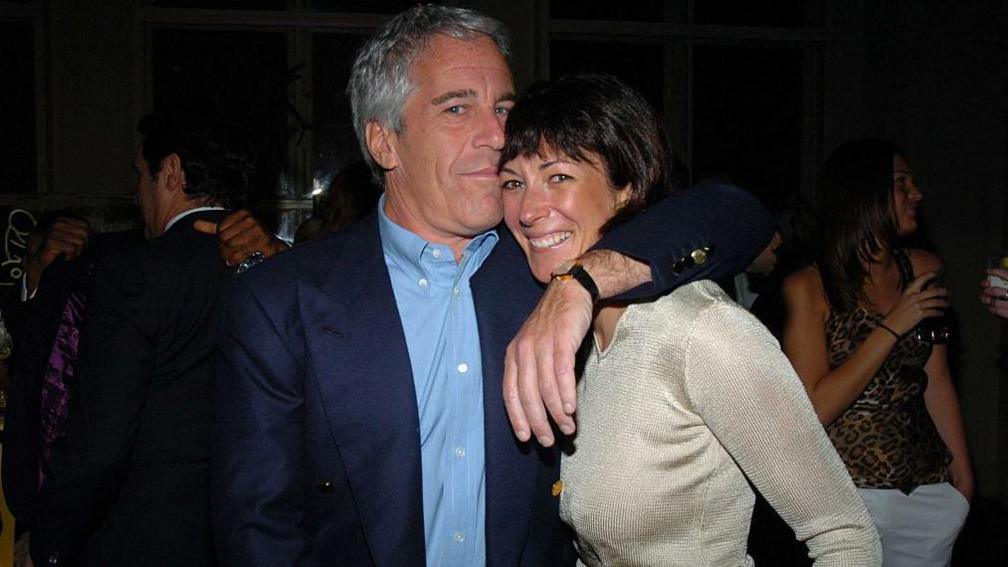Ghislaine Maxwell loses sex trafficking appeal

Jeffrey Epstein and Ghislaine Maxwell in 2005
- Published
Ghislaine Maxwell's appeal against her sex trafficking conviction has been rejected by a US court.
Maxwell, 62, was found guilty in December 2021 of helping disgraced financier Jeffrey Epstein sexually abuse young girls.
She was sentenced to 20 years in prison in June 2022.
Judges at Manhattan's Second US Circuit Court of Appeals upheld Maxwell's five convictions and said her sentence was "procedurally reasonable".
A lawyer for Maxwell said she plans to challenge the ruling at the US Supreme Court.
Epstein, a former boyfriend of Maxwell's, died by suicide in 2019 in a Manhattan jail cell, five weeks after he was arrested and charged with sex trafficking.
Maxwell had claimed that she should be set free under the terms of a 2008 deal between Epstein and federal prosecutors in Florida.
Under the agreement, prosecutors agreed not to pursue his alleged co-conspirators.
Maxwell's lawyers argued in March that the British socialite "should never have been prosecuted", because of the "weird" agreement.
But three judges dismissed her arguments, saying Epstein's non-prosecution deal was intended to bind only prosecutors in southern Florida.
The judgement also dismissed Maxwell's claims that she did not have a fair trial because one of the jurors did not disclose that he had been sexually abused as a child.
Ghislaine Maxwell appeals sex abuse conviction
- Published12 March 2024
The story of Ghislaine Maxwell's downfall
- Published28 June 2022
Maxwell's lawyer indicated she will now take the appeal against her conviction to the US Supreme Court.
"We are obviously very disappointed by the court's decision and we vehemently disagree with the outcome," Arthur Aidala said in a statement.
"We are cautiously optimistic that Ghislaine will get the justice she deserves from the Supreme Court of the United States."
Throughout the course of Maxwell's 2022 trial, four women testified that they had been abused as minors at Epstein's homes in Florida, New York, New Mexico and the Virgin Islands.
They recounted how Maxwell, who is the daughter of former Daily Mirror owner Robert Maxwell, had talked them into giving Epstein massages which turned sexual.
They claimed they were lured with gifts and promises about how Epstein could use his money and connections to help them.
During her trial, a judge rejected attempts to throw out the case, including an argument by Maxwell's lawyers that she had not been allowed to prepare adequately for her trial and that prosecutors had waited too long to bring their case against her.